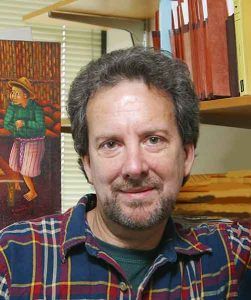Scott Atran in Psychology Today:
 When French President Emmanuel Macron declared during a visit to the Vatican this past summer that, “We have, anthropologically, ontologically, metaphysically, need of religion” (Nous avons, anthropologiquement, ontologiquement, métaphysiquement, besoin de la religion), there was little critical analysis in the press, much less by philosophers and scientists, of the moral, historical, or evidentiary basis of such a sweeping claim by the leaderof one of the world’s first and most revolutionary secular regimes. What follows is an attempt to make sense of President Macron’s claim in the current European and global socio-political context, in part with the aid of recent research in Europe, North Africa, and the Middle East from our teamat Artis International and the Centre for the Resolution of Intractable Conflict at Oxford.
When French President Emmanuel Macron declared during a visit to the Vatican this past summer that, “We have, anthropologically, ontologically, metaphysically, need of religion” (Nous avons, anthropologiquement, ontologiquement, métaphysiquement, besoin de la religion), there was little critical analysis in the press, much less by philosophers and scientists, of the moral, historical, or evidentiary basis of such a sweeping claim by the leaderof one of the world’s first and most revolutionary secular regimes. What follows is an attempt to make sense of President Macron’s claim in the current European and global socio-political context, in part with the aid of recent research in Europe, North Africa, and the Middle East from our teamat Artis International and the Centre for the Resolution of Intractable Conflict at Oxford.
The values of liberal and open democracy appear to be losing ground worldwide to xenophobic ethno-nationalisms and radical religiousideologies. The “creative destruction” associated with global markets has transformed people from the planet’s farthest reaches into competitive players seeking progress and fulfillment through material accumulation and its symbols, but without a sense of community and common moral purpose. The forced gamble of globalization especially fails when societies lack enough time to adapt to unceasing innovation and change.
